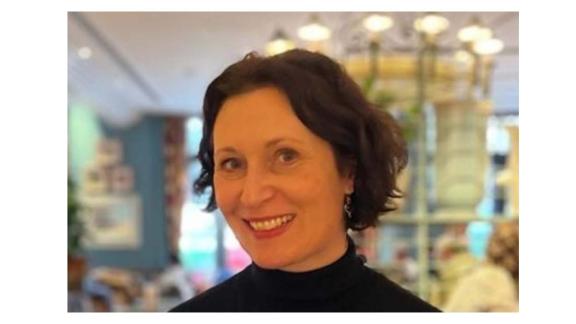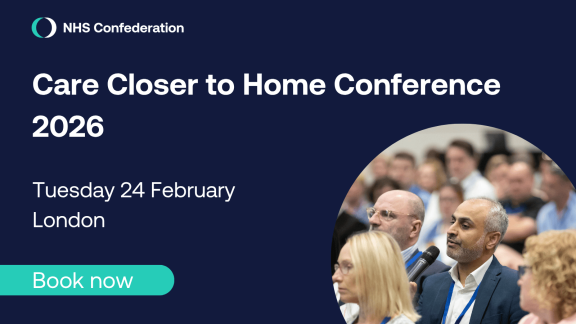Supporting transgender and gender non-conforming patients to access healthcare

Rebecca Stephens shares the lightbulb moment that opened her eyes to the inequalities faced by gender non-conforming patients, and how this has led to a dedicated primary care clinic for transgender and gender non-conforming patients in her local community.
As a GP partner in Southwark working in the same practice for 20 years, I’ve done a lot of the expected things: taking up a federation clinical director role, working in both the hot hub and immunisation service during the pandemic, leading our extended access service, and mentoring junior clinicians. All of this has been rewarding, but being part of a small team which has set up the Bridge Clinic, a primary care service in South Southwark specifically for the transgender, non-binary/gender non-conforming, and intersex populations, has been career transforming.
A lightbulb moment
During the pandemic, I met a junior practice nurse called Flora. They were a strong advocate for the trans/non-binary community and in the quieter moments at the hot hub, delivered some trans inclusivity training. As a GP I felt that I had been providing inclusive care - I respected pronouns, stated mine on my email, referred to gender services and supported shared care once seen there.
I was surprised and upset to learn more about the inequalities faced by gender non-conforming patients, but excited that GPs were more empowered to help than I had realised
However, as Flora shared her experiences and advocated for better gender-affirming care, like many GPs my initial thought was ‘I can’t do that, I don’t have the knowledge, are we even allowed?’ To improve my knowledge, I attended the CliniQ conference, which Flora and our GP colleague Max had helped set up, and had a lightbulb moment. Listening to the many amazing speakers, I was surprised and upset to learn more about the inequalities faced by gender non-conforming patients, but excited that GPs were more empowered to help than I had realised. Being uneducated no longer seemed like a reasonable excuse. I wanted to be a more active ally.
I now know that the transgender community has some unique healthcare needs but often faces discrimination or bureaucratic barriers to care which result in poorer health outcomes. In 2021, the Trans Lives Survey found that 45 per cent of trans respondents, and 55 per cent of non-binary respondents said that their GP did not have a good understanding of their needs as a trans person. Moreover, 70 per cent reported being impacted by transphobia when accessing healthcare services, and 57 per cent reported avoiding going to the doctor when unwell. As a result, trans patients are more likely to develop more serious health issues or receive lower-quality care.
Gender-affirming care
With this in mind, the idea for swiftly improving this situation for our local population was born. We formed a team determined to develop a dedicated clinic before the end of 2022. We were incredibly lucky to have the unwavering support of Michelle Ross, the founder of CliniQ, and her team, as well as feedback directly from our local community. We were able to secure interim funding from our federation before being funded by Partnership Southwark’s inequalities funding – the first successful proposal for any LGBTQ+ inequality funding in London.
We have seen a wide variety of people seeking gender-affirming care or eager to access primary care without the barrier of having to explain their gender identity
Our first clinic was in December 2022 and each month since, patients from 18 practices have accessed the full range of routine general practice services in an inclusive environment from a majority LGBTQ+ staff. We have seen a wide variety of people seeking gender-affirming care or eager to access primary care without the barrier of having to explain their gender identity. In the first five months we delivered 30 health checks and identified missed opportunities to help patients. We have provided smoking cessation advice to 38 per cent of our patients and offered health and wellbeing coaching with referral to obesity services for patients with a BMI over 30. We also met three patients who had been unwilling to have a smear test at their registered practice but felt comfortable taking up the service when offered by our practice nurse. By offering them an affirming environment, we empowered them to engage with care that has the potential to catch cancer early, when treatment outcomes are better.
The impact on patients has been huge
We have also supported patients to access secondary and community services including PREP and PEP, or specialist mentoring and counselling. Our team has also delivered care unique to the trans/non-binary community. Due to difficulties accessing NHS gender-affirming care, 20 per cent of patients were self-medicating with hormones and 30 per cent were accessing private gender-affirming hormone prescriptions without access to adequate monitoring. We have now taken over prescribing and put monitoring in place.
The impact on patients has been huge. 32 per cent had previously experienced discrimination related to their gender at their GP practice, and 73 per cent had previously put off visiting their GP due to fear of discrimination, leaving them at risk of more serious conditions and late-stage diagnoses. Meanwhile, with the support of our team, they are empowered to be involved in decisions about their health and wellbeing and our patient satisfaction score is 100 per cent.
Throughout the process our team has developed a strong friendship and found a shared passion for the work that helped us get through the rising tide of burnout that has been affecting so many of our colleagues across primary care. Moreover, for the last six months it has been humbling to experience the gratitude of patients and the support of a team who are excited to be making a tangible impact on a community that faced unique inequalities. I am privileged to be able to work in this area as a cis woman. I have met truly inspiring clinicians, advocates, activists and patients and I am proud to be a Trans Ally.
Rebecca Stephens is a clinical director and GP at Improving Health London GP Federation.



